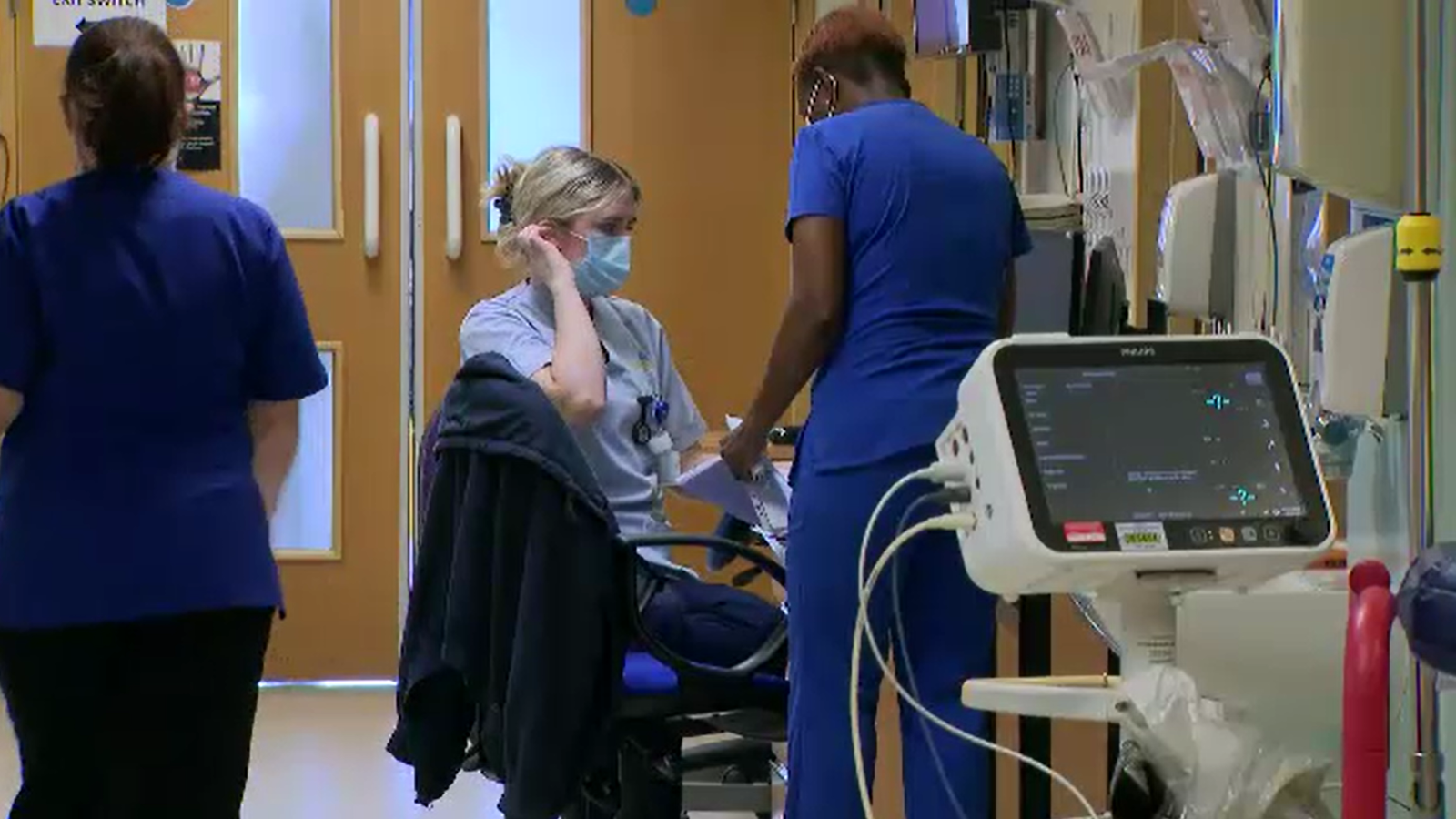More than 72,000 assaults were carried out on hospital staff in the past four years but only a small percentage were reported to police, Sky News can reveal.
The number of attacks is probably much higher – perhaps double – as only half the NHS hospital trusts in England and Wales responded to Sky’s questionnaire.
The figures show a remarkable reluctance of victims to call in detectives and a low level of criminal justice in the cases police did investigate.
But one nurse, the victim of five assaults in his career, told Sky News how the decision to report an attack is not always easy.
James Glen, 36, a charge nurse at Bournemouth Hospital, said: “My last attacker was a gentleman who was at the end of his life. He was confused again. I was having a normal conversation with him.
“He’d been pleasant all day and then he just spat on my face. It was at the height of the COVID pandemic, with obvious concerns and worries about that, but I didn’t report it.
“It went through my mind that I didn’t want his wife to be contacted after he died, maybe a week later, by the police and find that was her last memory of her husband.”
Sandwell and West Birmingham Hospitals recorded 969 assaults but said 934 of the staff members affected did not want police involvement.
North West Anglia NHS Trust said it had recorded 290 attacks and reported 76 to police, with 10 offenders arrested.
In a Freedom of Information request, Sky asked the then 150 NHS Hospital Trusts in England and Wales how many assaults on medical staff they had recorded between January 2018 and 1 December 2021.
We also asked how many assaults were reported to the police and how many got a criminal justice outcome involving a caution, a charge and a court conviction or acquittal.
Just 76 trusts responded, with 72,174 recorded assaults.
Only 38 of those trusts gave details of the assaults they reported to police – of their 36,544 recorded assaults they reported only 3,161, or 8.6%.
Of those trusts, 23 gave Sky News all we asked for: the number of assaults (18,919), police referrals (1,289) and those that had a criminal justice outcome (458).
That means only 2.4% of those 23 trusts’ assaults ended in the attacker being given a police caution or being taken to court. It is not known how many offenders, if any, were acquitted.
‘There was a lot of guilt’ says sexual assault victim
Leanne Aggas, Bournemouth Hospital’s head of nursing, was the victim of a sex assault by a drunk patient in the emergency department of another hospital some years ago and waived her right to anonymity to discuss her case.
Her attack was witnessed by colleagues, caught on CCTV and swiftly dealt with. She said her attacker pleaded guilty at court and saved her a lot of the hassle with the criminal justice system, but she understood why many colleagues didn’t want to call the police.
Ms Aggas, 39, said: “There was a lot of guilt around when I found out he pleaded guilty because of the impact that has on somebody else’s life, but equally I didn’t deserve what happened to me.”
She believes the justice system could be more supportive of victims and encouraged them to report attacks.
She said: “I think it’s just a difficult process when you’re not in it to know how to navigate and so not only are you dealing with the feelings of what’s happened to you, but also the worry of what if nobody believes me? What if I say something wrong about the attacker?
“It’s not a lack of confidence. It’s more about knowledge of the process and how you will be supported through that.”
Increase in waiting times
Dr David Wrigley, of the doctors’ trade union the British Medical Association, said: “It is shocking that we are seeing increasing numbers of assaults now. It’s important to put into context though that sometimes these patients could be unwell, particularly with mental health problems.
“In recent times, we’ve seen a huge increase in the waiting times and the ability to get care when you need it and that leads to frustration for people who are unwell. They’re frightened about their illness, and sometimes it’s understandable if they become anxious and concerned but abuse, aggression and violence are absolutely unacceptable.”
He added: “The BMA has actually called on the government to increase the penalty for common assault from one to two years for NHS staff and public sector workers and we’re waiting for them to act on that.
“I would encourage all staff to report these incidents and it’s incumbent on management and those in charge of the NHS to take this seriously.”
The Department of Health and Social Care said in a statement: “Deliberate violence or abuse directed at NHS staff is unacceptable – we are working to tackle this to ensure staff are able to work in a safe and secure environment.
“The NHS has established an NHS Violence Reduction Programme which aims to protect the NHS workforce against deliberate violence and aggression from patients, their families and the public, and to ensure offenders are punished quickly and effectively.”








